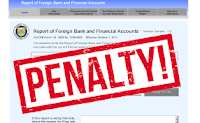The Financial Crimes Enforcement Network (FinCEN) has issued proposed regs implementing the beneficial ownership information reporting provisions of the Corporate Transparency Act. The proposed rules address, among other things, who must report beneficial ownership information (BOI), when BOI must be reported and what BOI must be reported. These proposed regulations would implement the
requirement in the CTA [1] that
a reporting company submit to FinCEN a report containing beneficial owner and
company applicant information (together, “beneficial ownership information” or
BOI). This proposal fulfills the statutory direction to Treasury to promulgate
regulations to implement the CTA and reflects FinCEN's careful consideration of
public comments received in response to an advanced notice of proposed
rulemaking (the “ANPRM”).[2] To
the extent practicable, and as required by the CTA, the proposed regulations
aim to minimize the burden on reporting companies and to ensure that the
information collected is accurate, complete, and highly useful. More broadly,
the proposed regulations are intended to protect U.S. national security,
provide critical information to law enforcement, and promote financial
transparency and compliance. The CTA and these proposed regulations represent
the culmination of years of efforts by Congress, the Department of the Treasury
(Treasury), other national security agencies, law enforcement, and other
stakeholders to bolster the United States' corporate transparency framework and
to address deficiencies in BOI reporting noted by the Financial Action Task
Force (FATF), Congress, law enforcement, and others. The proposed regulations
address: (1) Who must file; (2) when they must file; and (3) what information
they must provide. Collecting this information and providing access to law
enforcement, the intelligence community, and other key stakeholders will
diminish the ability of malign actors to obfuscate their activities through the
use of anonymous shell and front companies. The proposed regulations would also
specify circumstances in which a person violates the reporting requirements.
These proposed regulations would implement the
requirement in the CTA [1] that
a reporting company submit to FinCEN a report containing beneficial owner and
company applicant information (together, “beneficial ownership information” or
BOI). This proposal fulfills the statutory direction to Treasury to promulgate
regulations to implement the CTA and reflects FinCEN's careful consideration of
public comments received in response to an advanced notice of proposed
rulemaking (the “ANPRM”).[2] To
the extent practicable, and as required by the CTA, the proposed regulations
aim to minimize the burden on reporting companies and to ensure that the
information collected is accurate, complete, and highly useful. More broadly,
the proposed regulations are intended to protect U.S. national security,
provide critical information to law enforcement, and promote financial
transparency and compliance. The CTA and these proposed regulations represent
the culmination of years of efforts by Congress, the Department of the Treasury
(Treasury), other national security agencies, law enforcement, and other
stakeholders to bolster the United States' corporate transparency framework and
to address deficiencies in BOI reporting noted by the Financial Action Task
Force (FATF), Congress, law enforcement, and others. The proposed regulations
address: (1) Who must file; (2) when they must file; and (3) what information
they must provide. Collecting this information and providing access to law
enforcement, the intelligence community, and other key stakeholders will
diminish the ability of malign actors to obfuscate their activities through the
use of anonymous shell and front companies. The proposed regulations would also
specify circumstances in which a person violates the reporting requirements.

The proposed regulations describe two distinct types
of reporting companies that must file reports with FinCEN—domestic reporting
companies and foreign reporting companies. Generally, under the proposed
regulations, a domestic reporting company is any entity that is created by the
filing of a document with a secretary of state or similar office of a
jurisdiction within the United States. A foreign reporting company is any
entity formed under the law of a foreign jurisdiction that is registered to do
business within the United States.
The proposed regulations also describe the
twenty-three specific exemptions from the definition of reporting company under
the CTA. The CTA also includes an option for the Secretary of the Treasury
(Secretary), with the written concurrence of the Attorney General and the
Secretary of Homeland Security, to exclude by regulation additional types of
entities. FinCEN does not currently propose to exempt additional types of
entities beyond those specified by the CTA.
The proposed regulations describe who is a beneficial
owner and who is a company applicant. A beneficial owner is any individual who
meets at least one of two criteria: (1) Exercising substantial control over the
reporting company; or (2) owning or controlling at least 25 percent of the
ownership interest of the reporting company. The proposed regulations define
the terms “substantial control” and “ownership interest” and describe rules for
determining whether an individual owns or controls 25 percent of the ownership
interests of a reporting company. The proposed regulations would also describe
five types of individuals who the CTA exempts from the definition of beneficial
owner.
The proposed regulations also describe who is a
company applicant. In the case of a domestic reporting company, a company
applicant is the individual who files the document that forms the entity. In
the case of a foreign reporting company, a company applicant is the individual
who files the document that first registers the entity to do business in the
United States. The proposed regulations specify that a company applicant
includes anyone who directs or controls the filing of the document by another.
Under the proposed regulations, the time at which a
required report is due would depend on: (1) When the reporting company was
created or registered; and (2) whether the report is an initial report, an
updated report providing new information, or a report correcting erroneous
information in a previous report. Domestic reporting companies created, or
foreign reporting companies registered to do business in the United States,
before the effective date of the final regulations would have one year from the
effective date of the final regulations to file their initial Start
Printed Page 69921 report with FinCEN. Domestic reporting companies
created, or foreign reporting companies registered to do business in the U.S.
for the first time, on or after the effective date of the final regulations
would be required to file their initial report with FinCEN within 14 calendar
days of the date on which they are created or registered, respectively. If
there is a change in the information previously reported to FinCEN under these
regulations, reporting companies would have 30 calendar days to file an updated
report. Finally, if a reporting company filed information that was inaccurate
at the time of filing, the reporting company would have to file a corrected
report within 14 calendar days of the date it knew, or should have known, that
the information was inaccurate.
The proposed regulations also describe the type of
information that a reporting company is required to file. First, the reporting
company would have to identify itself. The proposed regulations describe the
information that a reporting company must submit to FinCEN about: (1) The
reporting company, and (2) each beneficial owner and company applicant. This
includes, for example, the name and address of each beneficial owner and
company applicant, among other things. In lieu of providing specific
information about an individual, the reporting company may provide a unique
identifier issued by FinCEN called a FinCEN identifier. The proposed
regulations describe how to obtain a FinCEN identifier and when it may be used.
The proposed regulations also describe highly useful information that reporting
companies are encouraged, but not required, to provide. This additional
information would support efforts by government authorities and financial
institutions to prevent money laundering, terrorist financing, and other illicit
activities such as tax evasion.
The CTA provides that it is unlawful for any person to
willfully provide, or attempt to provide, false or fraudulent BOI to FinCEN, or
to willfully fail to report complete or updated BOI to FinCEN. The proposed
regulations describe persons that are subject to this provision and what acts
(or failures to act) trigger a violation.
In addition to the proposed information reporting rules, FinCEN has issued another Advance Notice of Proposed Rulemaking soliciting public comment on a potential rule to address the vulnerability of the U.S. real estate market to money laundering and other illicit activity.
Have a FinCen Reporting Problem?
Contact the Tax Lawyers at
Marini & Associates, P.A.
for a FREE Tax HELP Contact Us at:
or Toll Free at 888-8TaxAid
Footnotes
1. The
CTA is Title LXIV of the William M. (Mac) Thornberry National Defense
Authorization Act for Fiscal Year 2021, Public Law 116-283 (January
1, 2021) (the “NDAA”). Division F of the NDAA is the Anti-Money Laundering Act
of 2020, which includes the CTA. Section 6403 of the CTA, among other things,
amends the Bank Secrecy Act (BSA) by adding a new Section 5336, Beneficial
Ownership Information Reporting Requirements, to Subchapter II of Chapter 53 of
Title 31, United States Code.
Back to Citation
2. 86 FR 17557 (Apr. 5, 2021).















